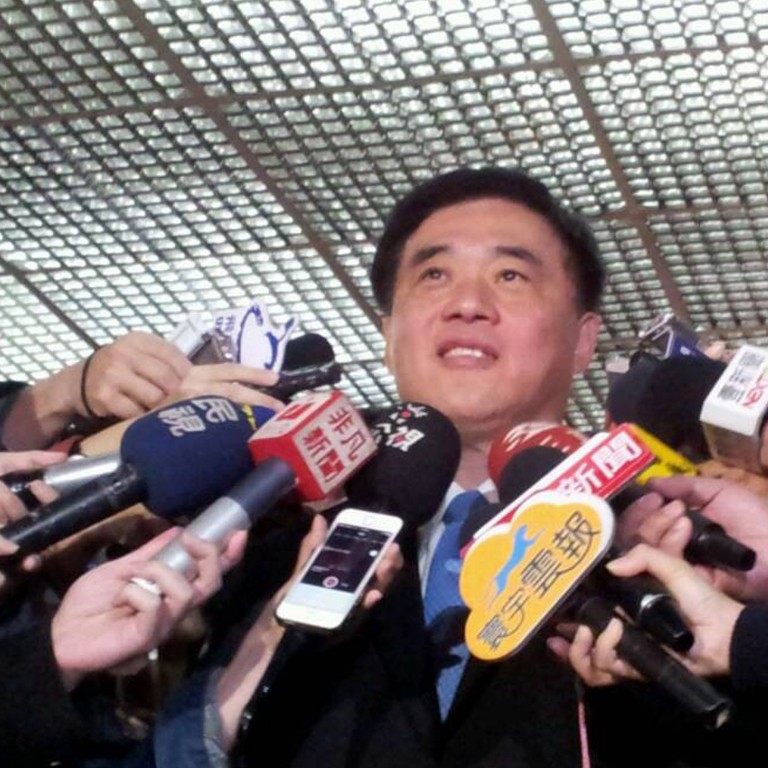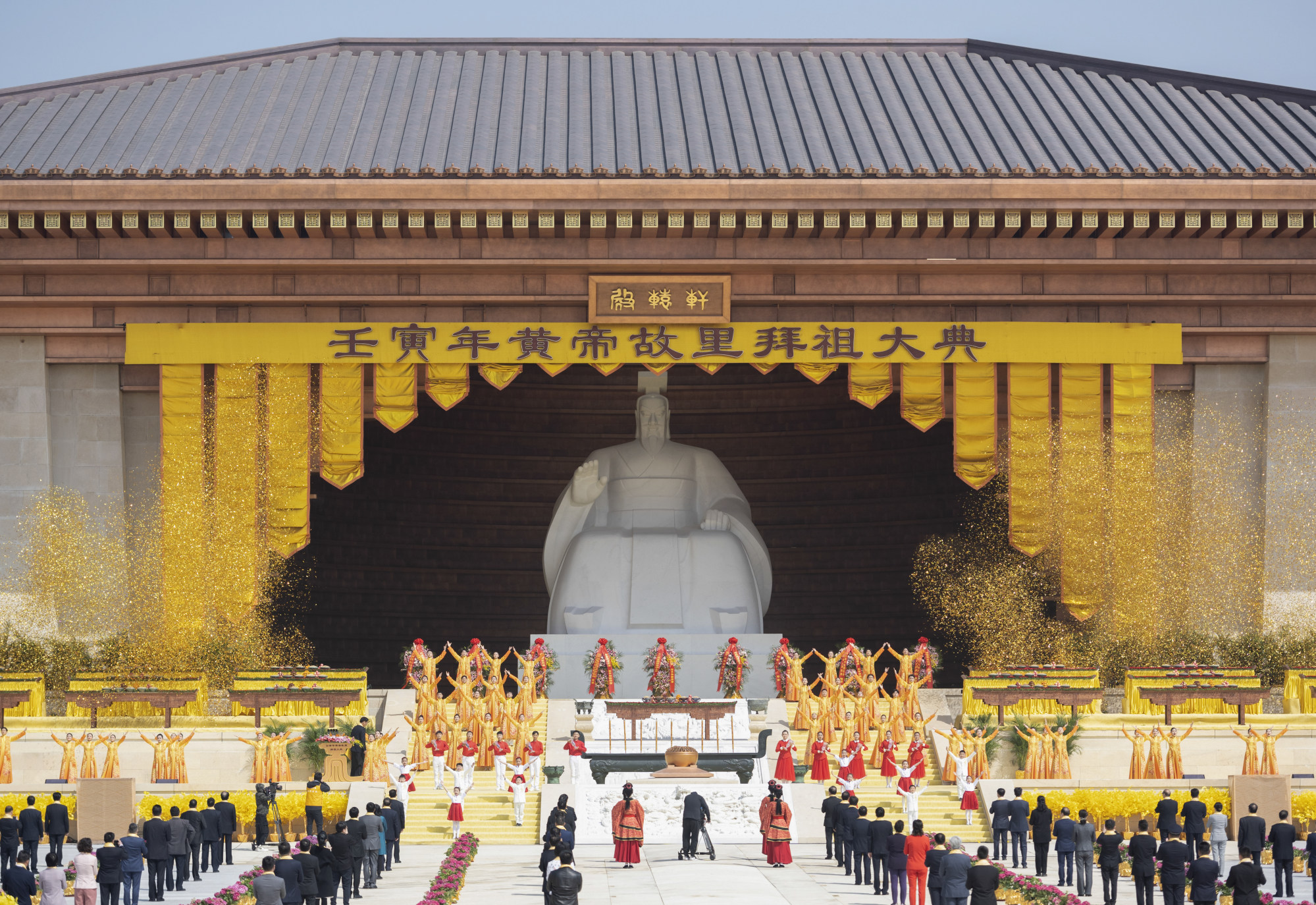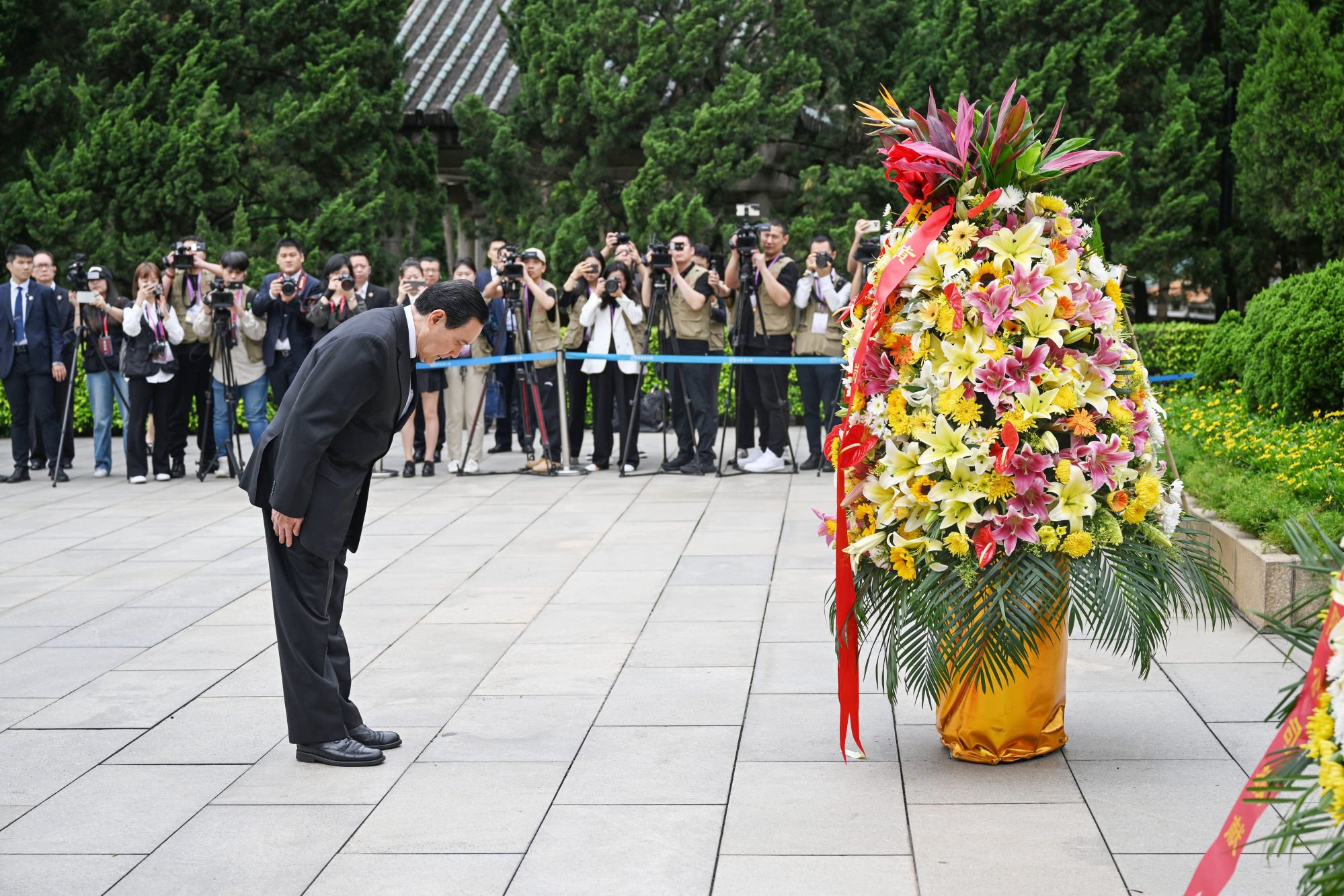
A second KMT leader from Taiwan plans a visit to mainland China next week
- Hau Lung-bin, a former mayor of Taipei, says he will visit Henan Province and take part in a ceremonial tribute in Zhengzhou to the Yellow King
- Hau’s trip will come as former Taiwan president Ma Ying-jeou concludes an 11-day tour, which began on Monday and might include a meeting with Xi Jinping
Hau Lung-bin, a former mayor of Taipei, will visit mainland China next week, following the “journey of peace” visit by former Taiwan president Ma Ying-jeou which began this week.
Speaking on a radio programme on Wednesday, Hau, the son of former Taiwan premier Hau Pei-tsun, said he would spend three to four days visiting central Henan province.
On the same day, the Taiwanese government declined Beijing’s offer of aid for a deadly earthquake in the island’s east coast. The magnitude 7.3 earthquake occurred Wednesday morning, killing at least nine and injuring over 900 in Hualien County.
During the trip, Hau said he would take part in a tribute ceremony for the Yellow Emperor in Zhengzhou, an annual local cultural extravaganza to celebrate the long history of the Chinese civilisation.

“The purpose of me paying homage to the Yellow Emperor is to honour our ancestry and heritage, and more importantly, to emphasise the fact that the people from both sides of the Taiwan Strait share the same root, the same origin, and the same historical and cultural backgrounds, which should go beyond political differences,” Hau said.
The Yellow Emperor, or Huangdi, was a legendary ruler said to have lived some 5,000 years ago and who is considered one of the ancestors of Chinese civilisation.
“It would be unreasonable for the cross-strait relations to end up in a military crisis or dangerous war caused by political manipulation,” Hau added.
Hau’s visit is to come near the end of Ma’s 11-day trip, which began on Monday. There has been speculation that the tour by Ma, Taiwan’s president from 2008 to 2016 and a former chairman of the mainland-friendly KMT party, will include a meeting with Chinese President Xi Jinping next week, though neither side has confirmed that.
Echoing Ma’s message of peace, Hau said Taiwan and the mainland now face “the danger of war” and his visit aims “to reduce misunderstandings and increase understanding” across the Taiwan Strait.
Ma Ying-jeou calls for both sides of Taiwan Strait to work together, ‘avoid war’
The KMT lost Taiwan’s presidential election in January to the independence-leaning Democratic Progressive Party (DPP), but won more seats in the Legislative Yuan.
Hau also urged William Lai Ching-te, the DPP president-elect, to includ “goodwill messages” in his inauguration speech on May 20.
Hau and Ma are not the only KMT politicians with mainland itineraries on their agendas: former legislative chief Wang Jin-pyng and former KMT chairwoman Hung Hsiu-chu are said to be planning visits in coming months too.
Tensions between Taiwan and Beijing have escalated since two mainland fishermen died in a chase by the Taiwanese coastguard near Quemoy, a Taiwanese outpost just kilometres from the mainland, last month.
Days after the incident, KMT vice-chairman Andrew Hsia Li-yan visited Shanghai and met with the mainland’s Taiwan Affairs Office chief Song Tao.
On Wednesday, Ma visited the cemetery of nationalist revolutionaries in Guangzhou, Guangdong province and paid tribute to those who died in an uprising against the Qing dynasty in 1911. The uprising was part of the revolution that led to the birth of the Republic of China (ROC) the next year.

The KMT ruled the ROC in the mainland from 1927 to 1949, when it was defeated by the Communist Party in the Chinese civil war and fled to the island of Taiwan. The People’s Republic of China was then founded on the mainland while the ROC has remained Taiwan’s official name.
Beijing regards Taiwan to be a rogue province, to be eventually reunified with the mainland – by force if necessary. Most countries, including the US, do not recognise Taiwan as an independent country but Washington is opposed to any attempt to take the self-governed island by force and is committed to supplying it with arms.

